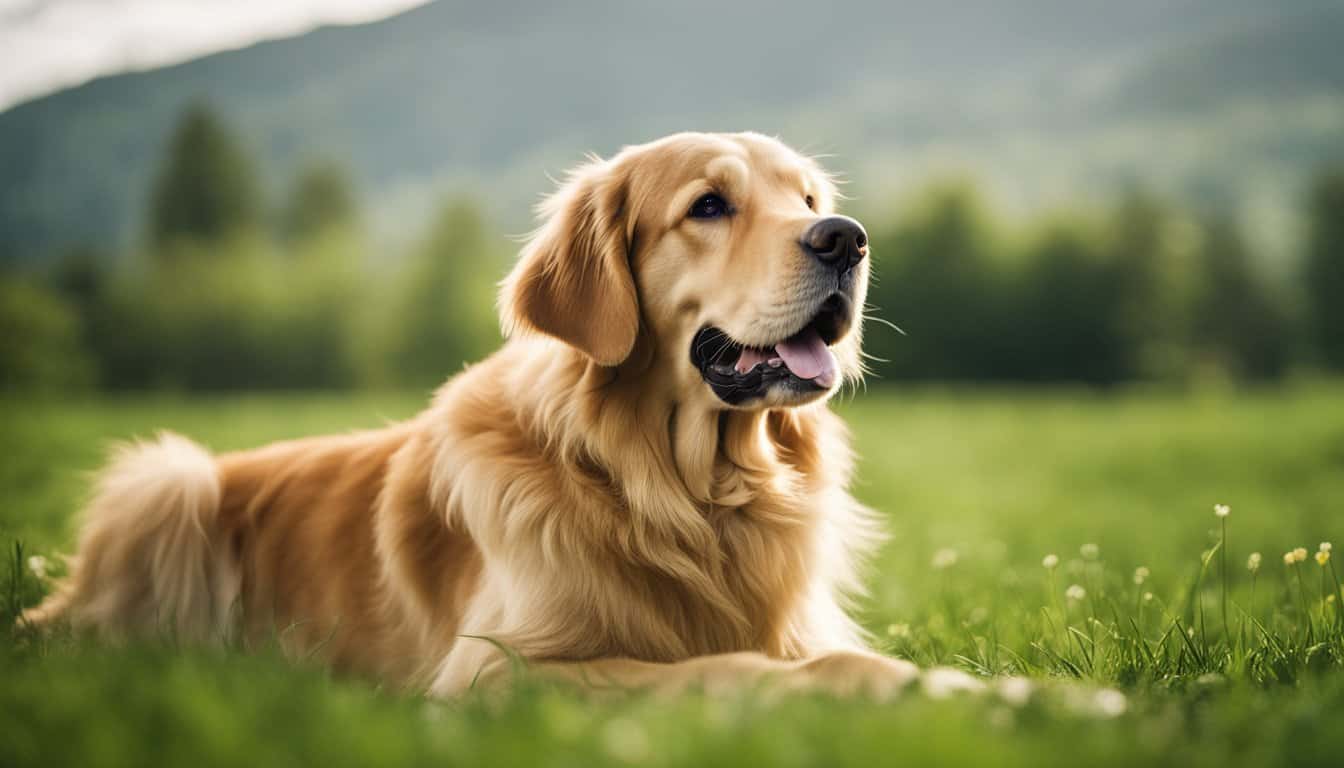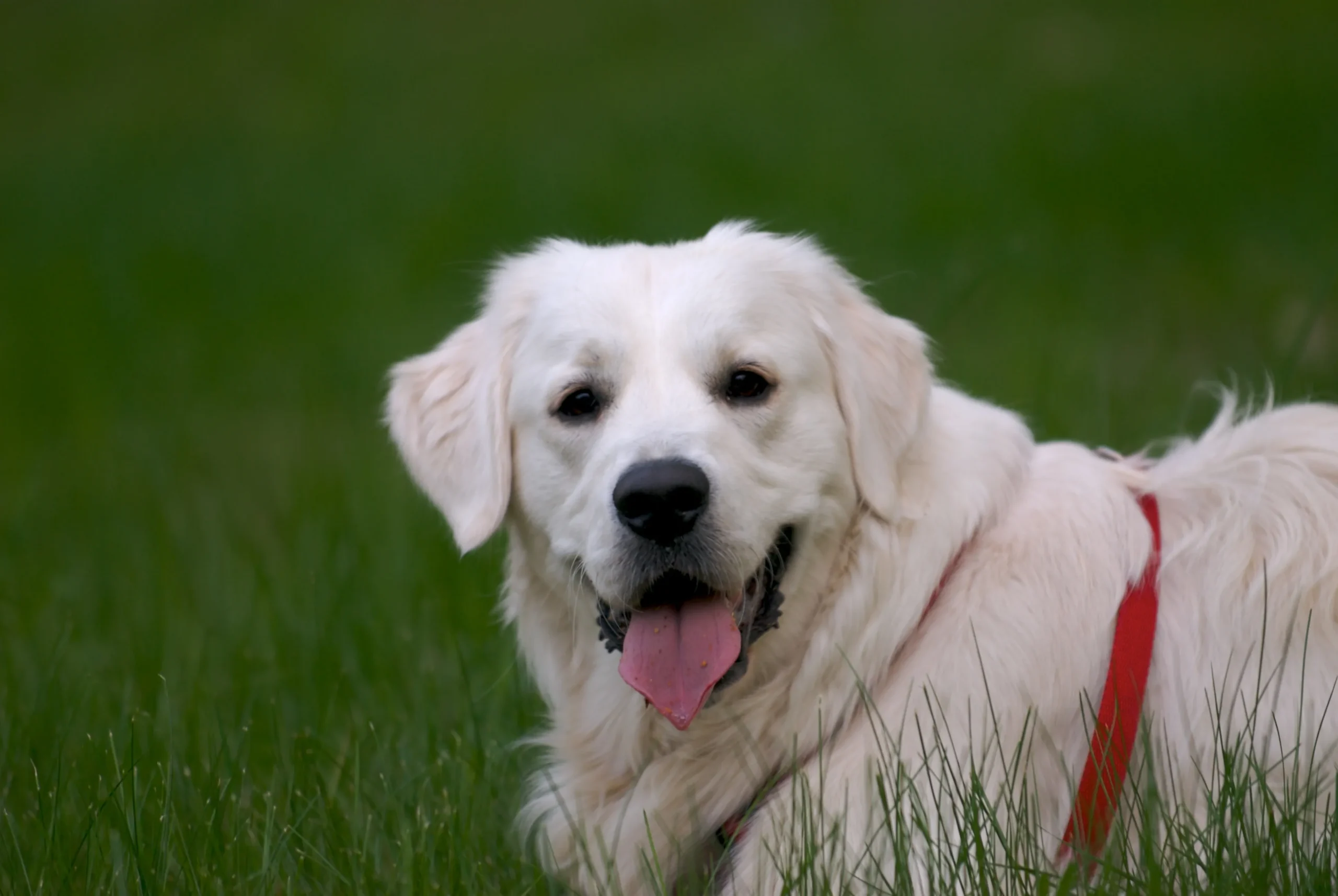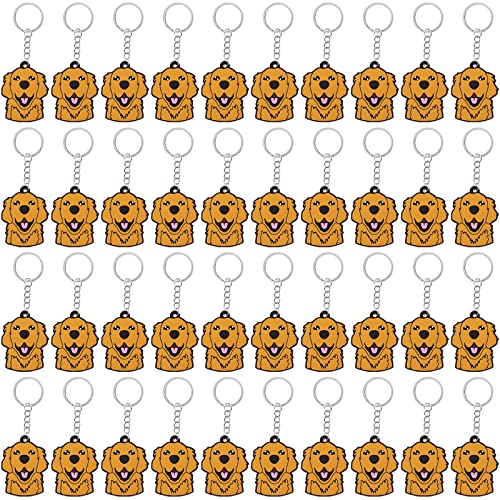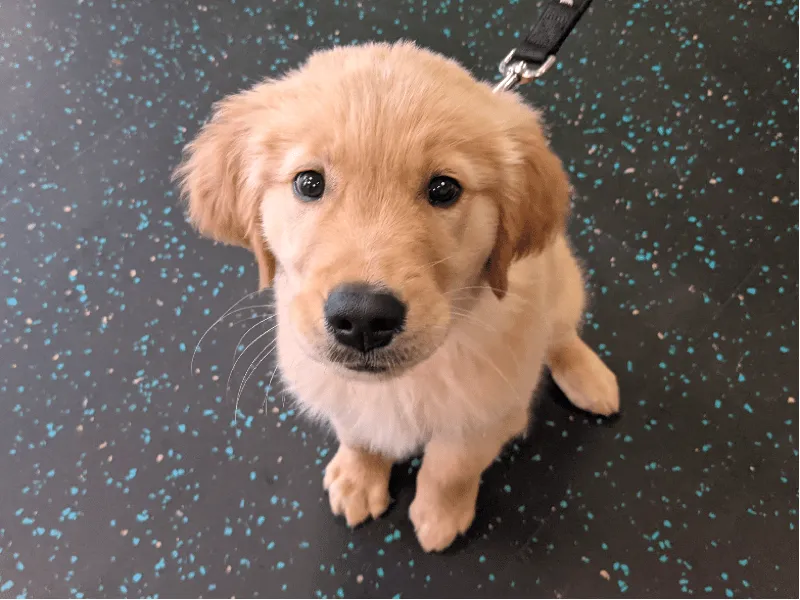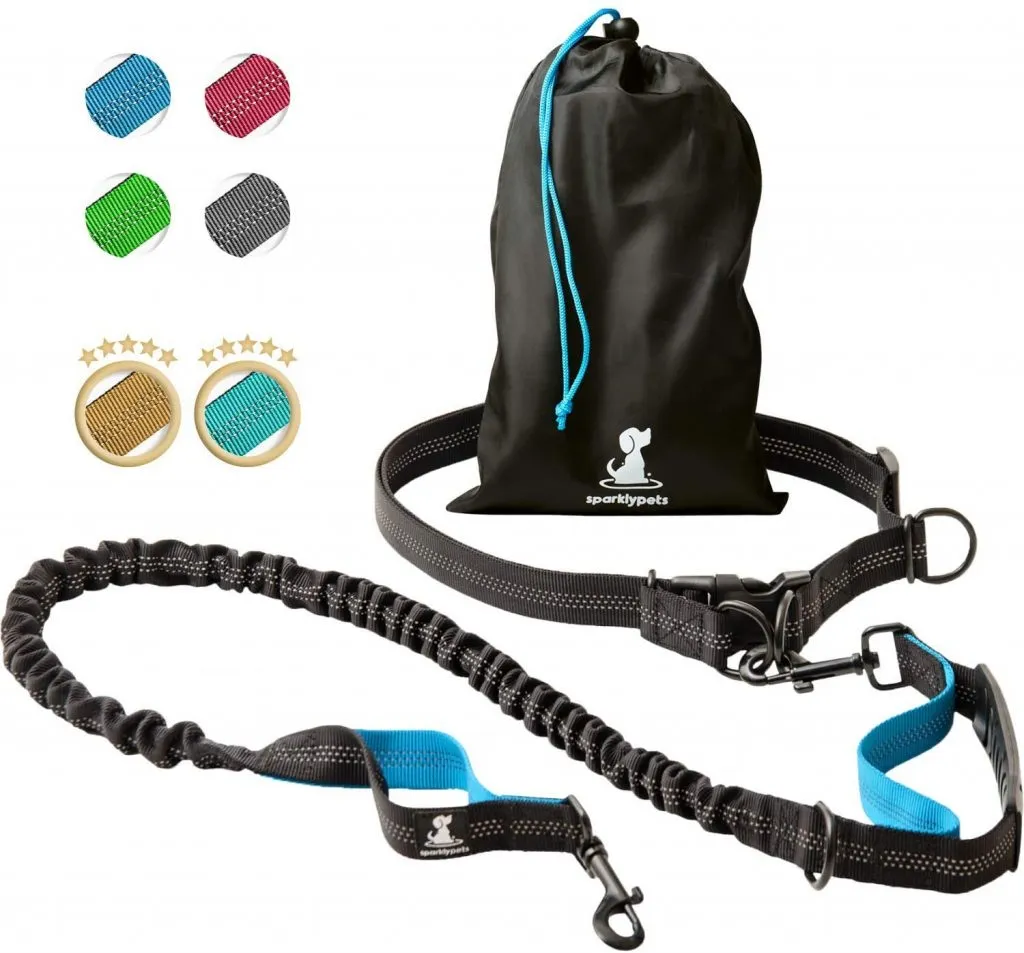If you’re considering getting a Golden Retriever, you may be wondering if they are hypoallergenic. Unfortunately, the answer is no. Golden Retrievers are not hypoallergenic dogs, but that doesn’t mean that you can’t have one if you suffer from allergies. In this article, we’ll explore the topic of Golden Retrievers and allergies in more detail, so you can make an informed decision about whether this breed is right for you.
Golden Retrievers are a popular breed of dog, known for their friendly and loyal nature. However, they are also known for shedding a lot of hair, which can be a problem for people with allergies. In addition to shedding, Golden Retrievers produce dander, which is a common allergen. This can cause symptoms such as sneezing, itching, and watery eyes in people who are allergic.
Key Takeaways
- Golden Retrievers are not hypoallergenic dogs, but there are steps you can take to reduce allergens in your home.
- Regular grooming and vacuuming can help to reduce the amount of hair and dander in your home.
- If you suffer from allergies, it’s important to consult with your doctor before getting a Golden Retriever to ensure that you can manage your symptoms.
Understanding the Golden Retriever Breed
https://www.youtube.com/watch?v=F0n8cIAnQr0&embed=true
If you’re considering getting a dog, you’ve probably heard of Golden Retrievers. They are one of the most popular dog breeds in the United States. These friendly dogs are known for their loyalty, intelligence, and love of people. But are Golden Retrievers hypoallergenic?
First, let’s talk about the breed itself. Golden Retrievers were originally bred in Scotland in the mid-19th century. They were used as hunting dogs, specifically for retrieving game birds. The breed was recognized by the American Kennel Club (AKC) in 1925 and has been a popular breed ever since.
Golden Retrievers are a medium to large breed, typically weighing between 55 and 75 pounds. They have a thick, water-repellent coat that comes in shades of gold. They are known for their friendly and outgoing personalities, making them great family pets.
However, it’s important to note that Golden Retrievers are not hypoallergenic. This means that they can still cause allergic reactions in people who are sensitive to dog allergens. Golden Retrievers are moderate to heavy shedders, which means that they produce a lot of dander and hair. This dander and hair can carry allergens that can cause allergic reactions in some people.
In summary, while Golden Retrievers are a friendly and popular dog breed, they are not hypoallergenic. If you have allergies, it’s important to consider this before getting a Golden Retriever or any other dog breed.
What Causes Allergies in Dogs and Humans
https://www.youtube.com/watch?v=aEdzToLO6lc&embed=true
If you’re allergic to dogs, it’s not the fur that’s causing the problem. It’s actually a protein found in their dander, saliva, and urine. When you come into contact with these allergens, your immune system reacts by producing antibodies that attack the allergens. This can cause a range of symptoms, from mild to severe.
Allergens are substances that trigger an allergic reaction. In dogs, the most common allergens are proteins found in their skin, saliva, and urine. When a dog licks himself, the saliva dries on his skin and becomes dander. This dander can then become airborne and cause an allergic reaction in sensitive individuals.
In humans, the immune system mistakes these proteins as harmful invaders and produces antibodies to fight them off. This triggers the release of histamine, which causes the symptoms of an allergic reaction. These symptoms can include sneezing, runny nose, itchy eyes, and even asthma.
It’s important to note that not all dogs produce the same levels of allergens. Some breeds, such as poodles and bichon frises, are considered hypoallergenic because they produce less dander than other breeds. However, no dog is completely hypoallergenic, and even so-called hypoallergenic breeds can still cause allergic reactions in some people.
If you suspect that you or someone in your family is allergic to dogs, it’s important to see an allergist for testing. They can help you determine the cause of your symptoms and develop a treatment plan to manage your allergies.
Shedding and Grooming of Golden Retrievers
https://www.youtube.com/watch?v=wODzPT0HA7c&embed=true
Golden Retrievers are not hypoallergenic dogs and they shed throughout the year. However, with proper grooming, you can manage their shedding and keep their skin and coat healthy.
« Why Would a Golden Retriever Be Panting: Common Causes and Solutions
Best Dog Food for Goldendoodle Puppies: Top Picks for Healthy Nutrition »
Golden Retrievers have a double coat with a soft, fluffy undercoat and a longer, coarser outer coat. This double coat helps them regulate their body temperature and provides protection from the elements. However, it also means that they shed a lot, especially during the spring and fall when they are blowing their coats.

To manage their shedding, it is recommended to brush your Golden Retriever daily with a slicker brush or a shedding blade. This will remove loose fur and prevent mats from forming. You can also use a deshedding tool to remove the undercoat during shedding season.
Bathing your Golden Retriever too often can strip their coat of natural oils and cause dry, itchy skin. It is recommended to bathe them every 6-8 weeks or as needed. When bathing, use a mild dog shampoo and rinse thoroughly to avoid leaving any residue on their coat.
In addition to brushing and bathing, it is important to keep your Golden Retriever’s skin and coat healthy by providing them with a balanced diet and regular exercise. You can also supplement their diet with omega-3 fatty acids to promote healthy skin and coat.
By following these grooming tips, you can manage your Golden Retriever’s shedding and keep their skin and coat healthy and shiny.
Comparing Golden Retrievers with Other Breeds
https://www.youtube.com/watch?v=YZuiHh9cprQ&embed=true
When it comes to hypoallergenic dog breeds, Golden Retrievers are often a topic of discussion. While they are not considered a hypoallergenic breed, some people with mild allergies may be able to tolerate them better than other breeds.
If you are looking for a hypoallergenic breed, there are several options to consider. Poodles are often considered the most hypoallergenic dog breed, as they have hair instead of fur. Other hypoallergenic breeds include Bichon Frise, Portuguese Water Dog, and Chinese Crested.
Labrador Retrievers are a popular breed, but they are not hypoallergenic. They shed quite a bit, and their dander can cause allergic reactions in some people. If you are looking for a similar breed that is hypoallergenic, consider a Goldendoodle. This breed is a cross between a Golden Retriever and a Poodle, and they are often a good option for people with allergies.
German Shepherds are not hypoallergenic either. They are known for shedding quite a bit, and their dander can cause allergic reactions. If you are looking for a hypoallergenic breed that is similar to a German Shepherd, consider a Poodle. They are intelligent, loyal, and make great family pets.
In summary, while Golden Retrievers are not considered hypoallergenic, there are several hypoallergenic breeds to consider if you have allergies. Poodles are often the most hypoallergenic breed, but there are other options such as Bichon Frise, Portuguese Water Dog, and Chinese Crested. If you are looking for a breed similar to a Labrador Retriever or German Shepherd, consider a Goldendoodle or a Poodle.

Practical Tips for Allergy Sufferers
https://www.youtube.com/watch?v=gaToiTn9WKU&embed=true
If you are an allergy sufferer and want to live with a Golden Retriever, there are some practical tips you can follow to reduce the risk of allergic reactions. Here are some of them:
Keep Your House Clean
Keeping your house clean is one of the most important things you can do to reduce the amount of pet dander in your home. Vacuum your carpets and furniture regularly using a vacuum cleaner with a HEPA filter. You can also use air purifiers with HEPA filters to remove pet dander from the air. Additionally, wiping down surfaces with a damp cloth can help remove pet dander from furniture and other surfaces.
Establish Boundaries
Establishing boundaries in your house can help reduce the amount of pet dander that accumulates in certain areas. For example, you can designate certain areas of your house as off-limits to your Golden Retriever. You can also use baby gates to keep your dog in certain areas of your house.
Use Antihistamines
Antihistamines can help reduce the symptoms of allergies caused by pet dander. These medications work by blocking the effects of histamine, a chemical that is released by the body in response to allergens. Some common antihistamines include loratadine, cetirizine, and fexofenadine.

Take Care of Your House
Taking care of your house can also help reduce the amount of pet dander in your home. For example, you can replace your carpet with hardwood or tile floors, which are easier to clean and do not trap pet dander as easily as carpet. You can also use air filters in your heating and cooling system to remove pet dander from the air.
Take Care of Your Golden Retriever
Taking care of your Golden Retriever can also help reduce the amount of pet dander in your home. For example, you can bathe your dog regularly to remove excess dander from their coat. You can also brush your dog regularly to remove loose hair and dander. Additionally, feeding your dog a healthy diet can help keep their skin and coat healthy, which can reduce the amount of dander they produce.
By following these practical tips, you can reduce the risk of allergic reactions and live comfortably with your Golden Retriever.
Nutrition and Health Care for Golden Retrievers
https://www.youtube.com/watch?v=UlTKcM0gbUU&embed=true
Taking care of your golden retriever’s nutrition and health is crucial to keeping them happy and healthy. Here are some tips to help you keep your furry friend in top shape.

Feeding Your Golden Retriever
Feeding your golden retriever high-quality food is essential to their health. Look for food that contains natural ingredients and is free from artificial preservatives, colors, and flavors. Check the ingredients list to ensure that the food contains a good balance of protein, carbohydrates, and fats.
Golden retrievers are prone to food allergies, so it’s important to monitor their diet and watch for any signs of an allergic reaction. If you suspect your dog has a food allergy, talk to your vet about switching to a hypoallergenic diet.
Omega-3 Fatty Acids
Omega-3 fatty acids are essential for your golden retriever’s health. They help to maintain healthy skin and coat, reduce inflammation, and support brain development. You can find omega-3 fatty acids in fish oil supplements or in some high-quality dog foods.
Fleas and Ticks
Fleas and ticks are common pests that can cause health problems for your golden retriever. Make sure to check your dog regularly for fleas and ticks, especially during the summer months. Use flea and tick prevention products recommended by your vet to keep your dog safe.
Bedding
Golden retrievers love to sleep, so it’s important to provide them with a comfortable bed. Look for a bed that is the right size for your dog and made from high-quality materials. Wash your dog’s bedding regularly to keep it clean and free from bacteria.

Sensitive Skin
Golden retrievers are prone to sensitive skin, so it’s important to use gentle grooming products. Look for products that are free from harsh chemicals and fragrances. Brush your dog regularly to keep their coat healthy and free from tangles.
By following these tips, you can help keep your golden retriever healthy and happy for years to come.
Frequently Asked Questions
https://www.youtube.com/watch?v=eSAyj1eL__8&embed=true
Can people with allergies live with Golden Retrievers?
Yes, people with allergies can live with Golden Retrievers, but it depends on the severity of their allergies. Golden Retrievers are not hypoallergenic, which means they can still cause allergic reactions. However, some people may be less sensitive to Golden Retrievers than other breeds. Before adopting a Golden Retriever, it’s best to spend time with one to see how your body reacts.
How much do Golden Retrievers shed?
Golden Retrievers are known for shedding a lot. They have a thick double coat that sheds seasonally and throughout the year. Regular grooming can help reduce the amount of hair in your home, but it’s important to note that you will still have to deal with shedding.

Are there any hypoallergenic Golden Retriever breeds?
No, there are no hypoallergenic Golden Retriever breeds. All Golden Retrievers have fur that can cause allergic reactions. However, some breeds may be less likely to cause allergies than others. For example, Poodles are often bred with Golden Retrievers to create Goldendoodles, which are hypoallergenic.
What are some tips for living with a Golden Retriever if you have allergies?
If you have allergies and want to live with a Golden Retriever, there are some tips you can follow to reduce your symptoms. Regular grooming, including brushing and bathing, can help reduce the amount of hair and dander in your home. Using an air purifier and keeping your home clean can also help. It’s important to talk to your doctor and allergist before adopting a Golden Retriever.
Are Golden Retrievers good pets for people with allergies?
Golden Retrievers can make great pets for people with allergies if their allergies are not severe. They are friendly, loyal, and great with children. However, it’s important to note that they do shed a lot and can cause allergic reactions.
What are some common allergies that Golden Retrievers may have?
Golden Retrievers are prone to allergies, just like humans. Some common allergies include food allergies, environmental allergies, and flea allergies. Symptoms may include itching, scratching, and skin irritation. If you suspect your Golden Retriever has allergies, it’s important to talk to your veterinarian.
